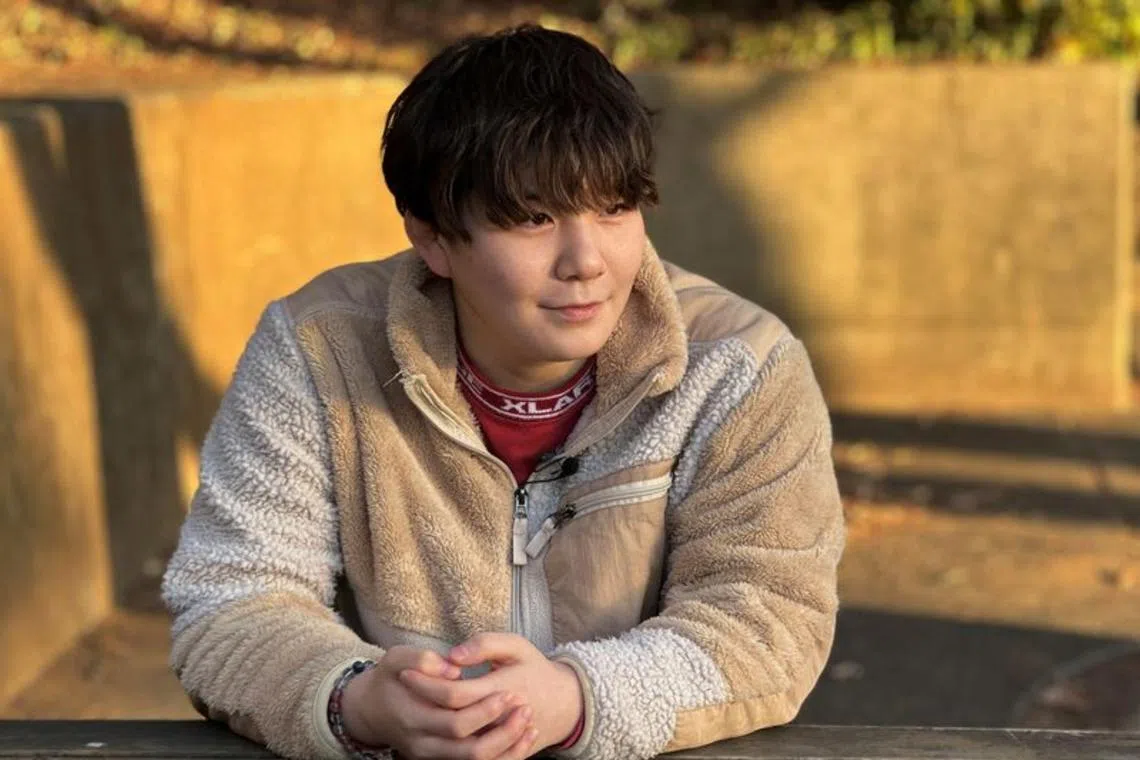Japanese ex-soldier wins battle for justice in landmark sexual assault case
Sign up now: Get ST's newsletters delivered to your inbox

Ms Rina Gonoi said she was subjected to persistent harassment after enlisting in 2020.
PHOTO: REUTERS
Follow topic:
FUKUSHIMA – A Japanese court on Dec 12 found three former soldiers guilty of sexually assaulting a female colleague, in a victory for the victim whose battle for justice challenged taboos in a traditional, male-dominated society.
The case of 24-year-old former Self-Defence Forces member Rina Gonoi
She said she was pinned down by three male colleagues, who simulated a sex act on her.
The defendants denied their acts amounted to sexual assault.
The men, aged 29 to 31, seemed to show little expression as the judge read out the verdict, giving each of them a suspended sentence of two years.
“I think it was good for Japan’s society that the court handed down a guilty verdict and accepted the claims that I’ve made from the very beginning,” an emotional Ms Gonoi told reporters outside the Fukushima district court after the ruling.
“(The verdict) shows that it’s not okay to do things for a laugh, that such acts are an actual crime,” she said, pausing mid-sentence to retain her composure.
Ms Gonoi, who said she was subjected to persistent harassment after enlisting in 2020, alleged that the three men pinned her to the ground, pulled her legs apart and pressed their crotches against her in simulation of a sex act.
She complained to her superiors at the time of the incident, but decided later to leave the army when no action was taken.
After Ms Gonoi went public with her accusations in 2022, a rare move in a conservative society where speaking out against sexual violence has remained largely taboo, Japan’s Defence Ministry issued a public apology.
The ministry also announced that five men connected to the incident had been dismissed, and four others punished, and began a widespread survey of harassment in the military and military-linked entities that found more than 1,400 complaints.
Ms Gonoi’s battle attracted international recognition: Time Magazine named her on its list of 100 emerging world leaders, while the BBC included her among its 100 most influential women globally.
But at home, she has been the target of online vitriol.
Professor Chelsea Szendi Schieder, who teaches Japanese history at Tokyo’s Aoyama Gakuin University, said: “The hurdles are incredibly high in Japan to be able to come out publicly and that has to do with… the kind of backlash a woman gets when she speaks out about these issues.”
She added: “It is a really important verdict that I hope has a lot of organisations within Japan re-evaluating their internal systems.”
Ms Gonoi has also lodged a civil case against her former peers and the government, seeking damages for the alleged assault and the subsequent inaction despite her complaints.
The cases come at an awkward time for Japan, which is trying to recruit more women soldiers into its forces and build up its military to deter an increasingly assertive China and nuclear-armed North Korea. REUTERS

